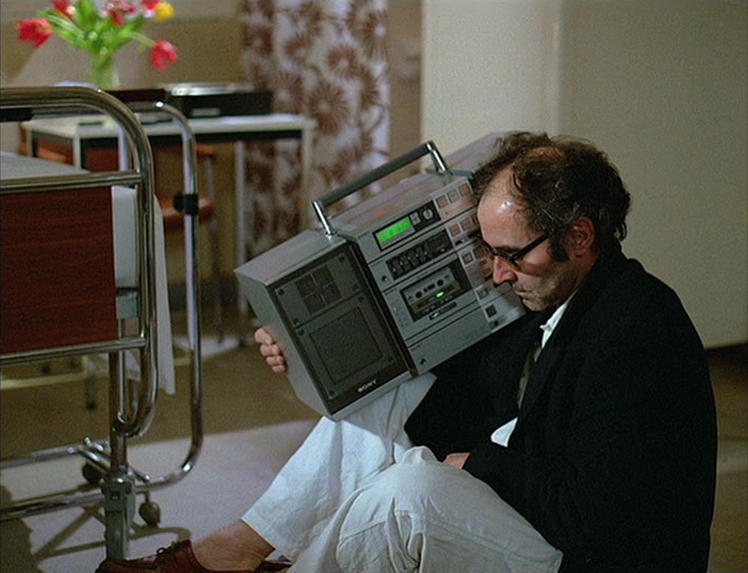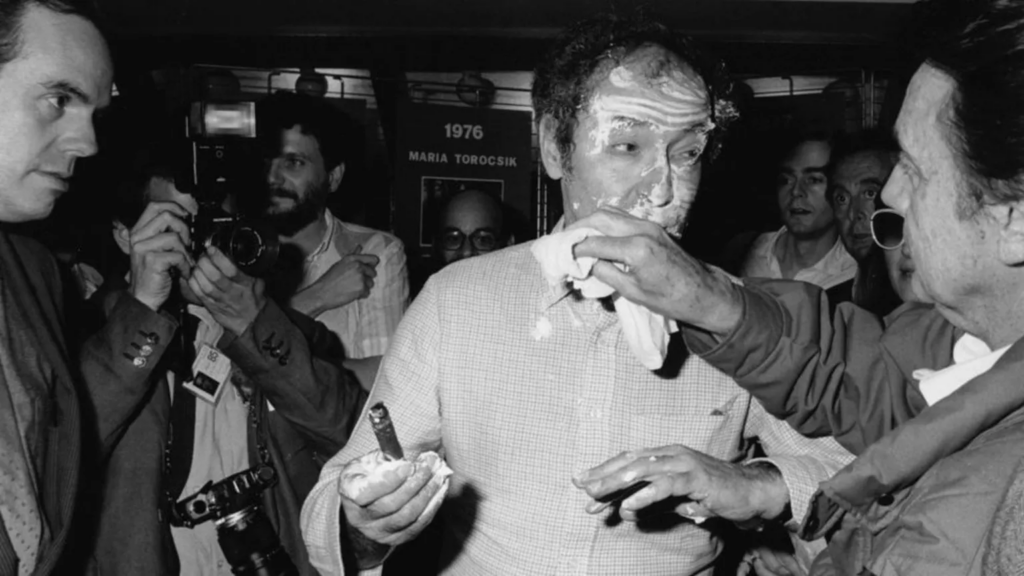Jean-Luc Godard in the ’80s: A Cinematic Revolution Continues

Written by Mia Shippey, AFS Creative Careers Intern
The 1980s marked a transformative period for cinema, and one name that continued to resonate with cinephiles everywhere was Jean-Luc Godard. The French New Wave pioneer, known for his groundbreaking work in the ’60s, ventured into the ’80s with a fervor that reflected the era’s spirit of change and experimentation. While these films may not have garnered as much public attention as his work from the ’60s, Godard proves that his voice is one worth listening to.
Godard’s ’80s films were characterized by a departure from the narrative structures of his earlier works. Embracing a fragmented, elliptical style, he continued to challenge conventional storytelling. Widely known as Godard’s, “second first film,” EVERY MAN FOR HIMSELF (1980) showcased his evolving visual language, blending bold aesthetics with a relentless exploration of existential themes, such as femininity and sexuality.

During a Dick Cavett interview in 1980, Godard told viewers that “Save Your Ass” was a more accurate translation of the film’s title. This film contains the air of self-awareness Godard was known for and a toxic leading man named after the director himself. Furthermore, the use of slow motion, shot at 24 frames per second and then slowed in editing, makes this film jagged and abrasive, highlighting the systematic abuse Godard is drawing our attention to. While this film ventures into the realm of distastefulness, it also manages to pick apart interpersonal relationships in an oddly authentic way.
A hallmark of Godard’s career has been his socio-political engagement, and the ’80s were no exception. In FIRST NAME: CARMEN (1983), he skillfully wove political commentary into this heist/thriller. Godard’s critiques of consumerism, media, and the shifting political landscape were evident, mirroring the societal upheavals of the time. Vincent Canby of the New York Times called the film, “both lucid and mysterious.” But this doesn’t make the film inaccessible to audiences.

Furthering Godard’s introspection, he appears in the film as Crazy Uncle Jeannot Godard who has given up filmmaking. This funny and inventive look at Godard himself gives the audience not only insight into the director but also room to laugh. The structure of the film leaves us with three different perspectives as artists and politicians try to bring their projects to life. The film is messy and people die, but it seems that Godard wants his audience to take comfort in that fact.
Perhaps one of Godard’s more notorious films, HAIL MARY (1985) is a controversial exploration of religious themes and contemporary society. The film reimagines the story of the Virgin Mary in a modern setting, showing the protagonist, a young woman named Marie, as a student and basketball player. The film challenges traditional religious narratives and explores the complexities of faith, sexuality, and existential questions.

This film sparked debates and discussions upon its release due to its unconventional approach to sacred subject matter. When Godard screened this film at Cannes, he was assaulted by a man who threw shaving cream in his face. While it’s maybe not the holiest film, this is a film that inspired audiences and got them talking. Godard responded to the incident at Cannes by saying, “This is what happens when silent movies meet talking pictures.”
DETECTIVE (1985) stands as a distinctive and unconventional entry in Godard’s career. Godard weaves together a complex tapestry of interconnected stories, blurring the lines between genres such as crime, drama, and comedy. The film follows a detective agency tasked with investigating the mysterious death of a wealthy businessman, but Godard’s narrative takes unexpected turns. The film is a dense and layered exploration of storytelling, identity, and the interplay between fiction and reality, inviting audiences to engage with its enigmatic narrative.

Jean-Luc Godard’s cinematic odyssey in the ’80s was a testament to his unwavering commitment to artistic innovation. As he navigated the changing landscape of cinema, Godard continued to provoke thought, challenge norms, and redefine the boundaries of storytelling.
You can see these films and more at AFS Cinema throughout the month of January in our series Essential Cinema: Godard in the ’80s.









